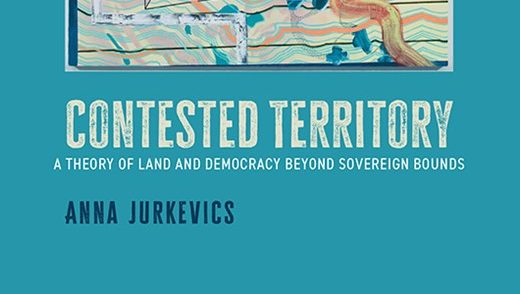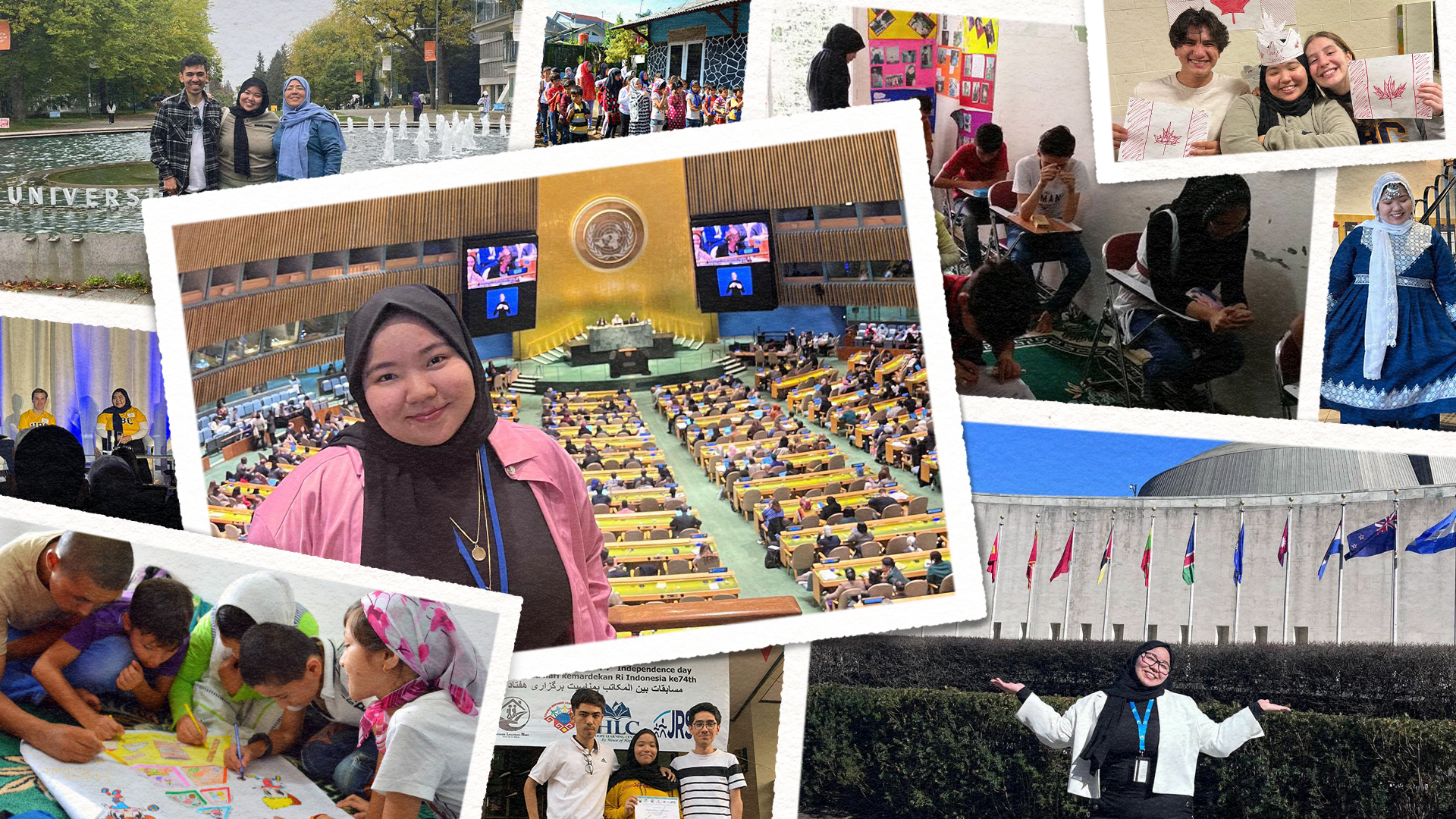On April 17, our graduating honours students successfully presented their undergraduate theses.
Over the course of the two-year program, these students researched a range of political topics based on their personal interests, from the role of instrumental music in diplomacy to the Small Island Developing States (SIDS) advocacy for the Paris Agreement.
Through their projects, these students gained expertise in their topic, experience with carrying out social science research, and contributed new research to the scholarly community.
2024 Honours Thesis Abstracts
Despite China’s recent ascendancy to a world superpower and its rapid economic and technological development, several writers have referred to discourse on China as ‘Orientalist’. There seems to be a fundamental mismatch between Edward Said’s 1978 articulation of Orientalism as seeing the Orient as backwards, static, and inferior with the modern conditions of China.
This paper attempts to provide a provisional understanding of what this ‘New Orientalism’ is. Drawing on the work of Edward Said and Michel Foucault, it traces new Orientalist discourse on China to its pre-19th century origins, noting the ways discourse has both changed and remained the same. By exploring changes in discourse that arise out of China’s increasing claims to economic and technological power, an idea of discourse on China moving towards objectivity is challenged.
Rather, discourse seems to be mediated in the West’s own self-construction by making China its lagging opposite and reinforcing Western claims to a ‘normal’, universal development. To cope with China’s changing material circumstances, New Orientalist rhetoric has shifted to a concentration on China’s moral lagging to characterize its inferiority to the West.
This thesis aims to fill a knowledge gap in the diaspora studies scholarship by evaluating the impact of the diaspora strategies of the full member states of the Caribbean Community (CARICOM) on the Caribbean Canadian diaspora. It employs a mixed-methods approach that includes a survey of ten Caribbean diasporans from across Canada and eight semi-structured interviews with this same group of diasporans.
Through these methods, the study provides insights into 1) diasporans levels of economic, political and cultural engagement with their home countries; 2) the ways in which Caribbean Canadians engage with their countries of origin; 3) the barriers to engagement faced by diasporans and 4) the ways in which the diaspora strategies of CARICOM governments could be improved.
The findings from this study point to a strong desire from the diaspora to remain more engaged with the region, despite the barriers they face in doing so (such as a lack of awareness of existing diaspora strategies and political and economic stability of home countries). The thesis also makes recommendations on how Caribbean diaspora engagement strategies could be improved.
While the intersection of music and politics has garnered some attention in scholarly discourse, the role of instrumental music as a soft power tool in diplomacy remains underexamined. This thesis bridges this gap by exploring the transformative capacity of instrumental music in influencing socio-political norms and international relations in both state sponsored and non-state sponsored contexts.
Using a critical aesthetic approach that synthesizes Adorno’s understanding of music and Said’s concept of “the Other”, my research examines the powerful potential of music as a diplomatic tool. To further my analysis, I adopt a mixed-methods approach to apply my theoretical framework to two case studies: the state-sponsored American Jazz Ambassadors and the non-state-sponsored West-Eastern Divan Orchestra. These examples demonstrate how music can operate as an agent of cultural exchange and foster understanding among politically divided groups, ultimately shaping socio-political norms and influencing power dynamics.
By transcending cultural and linguistic boundaries, instrumental music emerges as a unique artistic medium that facilitates cross-cultural exchange and transforms the diplomatic landscape. My analysis and findings demonstrate the multifaceted nature of musical diplomacy and contribute to an in-depth understanding of international relations and soft power discourse. Consequently, my research advances the existing literature by integrating critical aesthetic theory into contemporary diplomatic practices and analyzing how instrumental music can be utilized as a diplomatic tool for societal transformation and cross-cultural dialogue.
This study investigates the role of empathy and perspective-taking in shaping policy support toward oil and gas pipelines in Canada, with an applicable focus on the Trans Mountain Pipeline (TMX) project. Conducted through an online survey experiment with 442 participants, the study examines the influence of a perspective-taking exercise on policy support and political behaviour.
By prompting participants to imagine themselves in the situation of those directly impacted by Canadian pipeline policies, this research aims to assess the potential of empathy, induced through perspective-taking, to foster a more inclusive approach to policy evaluation. The results indicate that perspective-taking significantly decreased the likelihood of support for pipeline policies. However, it did not have a significant effect on participants' willingness to engage in actions like signing a petition against the TMX expansion to the Canadian government.
The study further revealed that participants who underwent the perspective taking exercise reported higher levels of emotional intensity (concern, sympathy, anger, activism), which in turn, significantly correlated with a decrease in policy support. In this context, emotional response is understood as an important mechanism between perspective taking and changes in policy support, suggesting a need for further research on their impact on policy attitudes and behaviors.
Building upon contemporary trends in feminist institutionalist (FI) thinking that address how institutions serve as sites of resistance to gender-positive movements, my paper examines how informal institutions (unwritten norms, practices, and beliefs) can obstruct formal efforts to improve gender inequality, often in subtle and less overt ways. I am particularly interested in the case of South Korea, where divisive and symbolic discourses on gender issues are prevalent in political campaigns, legislative debates, and even formal policy language. They harbor ambiguous and contested notions of gender equality, particularly concerning what it means specifically in the national context, who its intended beneficiaries are, and who is included/excluded from protection.
Notably, I apply Fiona Mackay's (2014) concept of “nested newness” to the Ministry of Gender Equality and Family, to analyze how political rhetoric shapes the ministry's functions and legitimacy according to different political agendas. Moreover, I find that ideological-discursive tensions surrounding the terms “gender” and “sex” equality in Korea illustrate how intersecting inequalities are perpetuated and reproduced by resistance actors’ conflicting interests. Furthermore, through a case study of national gender quotas that developed against the backdrop of soft international mandates, I contend that the term, “women's representation” frequently used in formal policy language, remains inadequately defined and growingly susceptible to resistance driven by a new norm that prioritizes meritocracy.
This thesis critically reevaluates Martin Heidegger's concept of Dasein, expanding its scope to include non-human animals (NHAs), thereby challenging the deep-seated anthropocentrism prevalent in contemporary philosophical and political theories. Traditional frameworks typically confine justice and moral consideration to humans, characterized by their capacity for rational thought and public reasoning, thereby excluding NHAs from discussions of rights and justice.
Drawing on Heidegger’s existential analytics, this work argues that NHAs, much like humans, experience Being-in-the-world and Being-towards-death, which are central to Heidegger’s definition of Dasein. This recognition pushes the boundaries of conventional justice systems that overlook the complex lives and intrinsic value of NHAs. By proposing a model of interspecies justice that acknowledges NHAs as active participants in their existential projects, this thesis advocates for a radical restructuring of ethical frameworks to accommodate the authentic modes of being of all sentient creatures. It suggests a shift from viewing NHAs as passive subjects within human-centric practices to recognizing their distinct existences and modes of being, thus calling for justice practices that genuinely respect and uphold the authenticity of all forms of life.
In this thesis, I ask: How should we understand the recent resurgence of regional populism in Alberta? Within this issue, I am interested in the intersecting cases of the election of Danielle Smith, the Alberta Sovereignty Act, Take Back Alberta (TBA), as well as the broader trend of an increase in anti-establishment populism, in which being “Albertan” is considered an important political identity, with connotations of being pro-oil and gas, pro-free market, anti-environmentalist, anti-intellectual, and anti-Ottawa.
To understand this phenomenon, I begin by briefly defining Alberta’s regional populism and establishing it as a phenomenon that has had an impact on Albertan politics, with a marked resurgence in recent years. From the literature, I identify a dominant explanation that highlights Western alienation and reliance on fossil fuels as significant forces driving this surge. While I find the insights from this work to be helpful – or even crucial –– in making sense of why Alberta’s populism has taken on some of its idiosyncrasies, I find that this explanation leaves much unanswered. Specifically, I find a gap in the literature regarding the ideational and discursive role which power has played in the emergence of this movement. As such, I further existing analysis by highlighting the influence of dominant paradigms on understanding of what it means to be Albertan. Specifically, I understand these paradigms to be sites of power –– both upheld by and upholding existing hierarchies and modes of governance.
In other words, building off existing literature, I argue that we must go beyond highlighting the idiosyncrasies of the province in isolation. Instead, I assert that Alberta's regional populism is best understood in the context of neoliberalism and petro-hegemony, as political rationales that are on the one hand dominant in the province, but on the other hand, increasingly face challenges and instability. As such, in developing my analysis I draw on a variety of critical theorists, putting them in conversation with authors who have examined political and spatial imaginaries in Alberta. I then go on to analyze the recent developments in Alberta politics related to regional populism, to both support my theory and provide further analysis. Ultimately, I conclude that the province's regional populism can be more thoroughly understood with an eye towards hegemony and its impact of subject formation, and that this lens offers valuable insights in how we can effectively engage in counter-hegemony.
The 2015 Paris Agreement marked a significant milestone in global climate negotiations, establishing a commitment to limit global warming to below 1.5°C above pre-industrial levels. This research focuses on Small Island Developing States’ (SIDS) advocacy for the 1.5°C target within the United Nations Framework Convention on Climate Change (UNFCCC) leading up to the agreement. Despite traditional international relations literature often overlooking small states’ power, emerging constructivist scholarship underscores SIDS’ critical impact in climate negotiations through normative power. Accordingly, this study investigates how SIDS strategically contributed to the construction and diffusion of the 1.5°C goal as a norm, reframing climate discourse within the UNFCCC.
Drawing on norm diffusion literature and frame theory, I argue that they played a significant role in advocating for the 1.5°C goal as an international norm. This claim is supported by a qualitative examination of SIDS' contribution to the UNFCCC from 2007 until 2015, using content analysis on daily Conference of Parties newsletters, along with SIDS’ submissions to climate change conferences. I find that, by leveraging their moral leadership, climate vulnerabilities, and invoking scientific evidence, SIDS effectively influenced negotiations leading up to the 1.5°C target adoption in 2015. These findings are complemented by a discourse analysis of the framings used by SIDS in their coalitions’s statements. By shedding light on SIDS' contribution to constructing and disseminating the 1.5°C norm, this study demonstrates their transformative impact in shaping the current normative dialogue and foundation around the 1.5°C norm in climate governance.
Despite the IMF setting benchmarks to increase staffing diversity, recent IMF staffing compositions still need to be more researched. This thesis investigates the International Monetary Fund’s (IMF) expanded role in climate change, focusing on how the nationality compositions of secretariat staff interact with climate-related economic assessments. This explores the internal dynamics of international organizations, adding to the theoretical and empirical research exploring theory and observations of staff member nationality’s influence in agenda orientations and organization authority enhancements. The findings reveal a modest increase in staff shares from climate-vulnerable states, occurring in tandem with climate integration. This study contributes to the literature on international organizations by identifying that the emergence of climate integration at the IMF was likely not influenced by changes in secretariat staffing compositions, and sets a foundation for future analysis of IMF authority enhancing processes.
The individual rights override provision (the notwithstanding clause) included in the 1982, Canadian Charter of Rights and Freedoms had traditionally been viewed as a mechanism that outside of Quebec was too politically costly to use. This understanding of the clause has rapidly shifted in recent years with provincial leaders having musings about a more frequent use of the clause. This paper employs a mixed-methods approach in its study.
I first measured public opinion since 1988 on who Canadians believe should adjudicate Charter disputes. I then employ an original theoretical table to compare the discourse of the drafters of the 1982 Constitution with the current provincial leaders who have used the clause to track changes on how permissive elites believe a use of the notwithstanding clause should be and for what uses it can be invoked. Finally, to empirically test whether a ‘federalism’ use of the clause is actually reflected in public opinion, I identified several invocations of the clause and tested provincial sentiments towards those particular issues in comparison to the national values.
Ultimately, I find that there is increasing trust in the provinces over the federal government; elite discourse suggests that there is now a more permissive understanding of using the clause for federalism purposes; and when the clause is invoked there is a difference in preferences between that province and the rest of Canada. However, the findings of the last theory may not be entirely due to provincial differences. The key contribution of this research is to look at the notwithstanding clause as a mechanism that is being used to express provincial differences in the federation, rather than solely a political choice to avoid accountability.
Little has been written about the effects that social media news bans (SMNBs) have on journalism and, as a potential consequence, democracy. This paper provides an initial assessment of whether SMNBs—in particular, those that are isolated to specific countries and social media platforms—incentivize online news organizations to shift their publication patterns in ways that could be detrimental to citizen participation in democracy.
More specifically, an original dataset of Canadian newspaper headlines from before and after Meta’s 2023 SMNB is analyzed for correlations between the existence of an SMNB and the amount of sensationalized and foreign news published. The results indicate no observable effect on either outcome. Therefore, this study does not find that SMNBs pose significant consequences for the quality and quantity of domestic journalism in the sample examined. However, further research is necessary in order to determine what broader impact such bans may have on individuals’ capacity to make informed democratic decisions.













